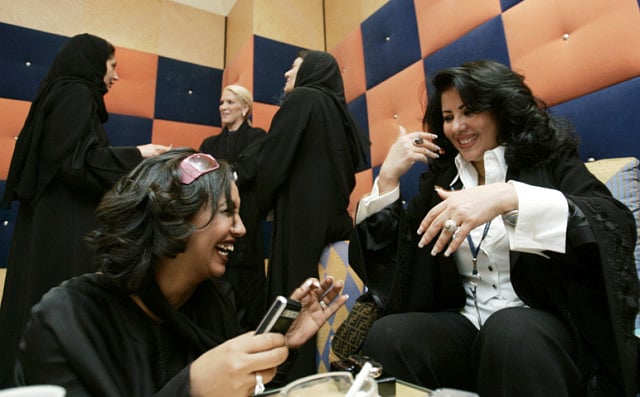Dubai: About one-third of the Saudi women in the Western Region of the kingdom are extremely conscious of their attire and looks besides displaying other traits that reflect a high level of self-indulgence, a recent study shows.
Some of the respondents in the survey said it is only natural that women pay attention to their beauty and looks. Some others even based their explanations in the history of the Western Region, which has traditionally been known for its openness to other cultures throughout history.
“At the end of the day, the women in Makkah are women,” said Saudi women’s activist Lena Al Maena told Gulf News. “And it is just natural for any women to take care of herself,” she said.
“However, honestly, I personally believe that if this study was conducted on what women do care about in other countries, I expect it will be higher [than the percentage in Saudi Arabia ],” she said commenting on the recently published study.
The study, which is a Ph.D. dissertation by Saudi student Amal Sindi, concluded that 36 per cent of women in the Makkah region are “self-indulgent”.
Published in several Saudi-owned media outlets recently, the study surveyed 1,541 women in Makkah and Taif and concluded that most of them had a taste for designer clothes, expensive perfumes and luxury watches, besides being “extremely keen” to own the latest models of smartphones.
Nearly 25 per cent of the surveyed women said they regularly visited beauty salons before attending social gatherings.
Several economic factors, including higher disposable incomes for women and their families besides new employment opportunities for women, have encouraged women to increase spending on luxury items, the study found.
Saudi women activists observed that working women and those with higher educational qualifications usually set aside bigger budgets for personal grooming and clothes than those who stay at home.
Lena also pointed to the increasing numbers of women at universities and in private businesses. There numbers of female — as well as male — entrepreneurs has also been growing.
“Makkah’s women, and people of Makkah in general, are known of [being good in] trade,” Lena said, also taking note of the fact that the city receives millions of pilgrims performing either Umrah or Haj each year.
“If there was another study about the businesswomen in Makkah area, the percentage would be very high,” she added.
Also, Makkah is close to the coastal and second largest Saudi city of Jeddah, the main port in the kingdom and the arrival point for all visitors to Makkah. Both Makkah and Taif are nearly 70Km from Jeddah, which is known for being a melting pot. In the past decades, the city has been increasingly exposed to people from different cultural backgrounds.
The survey’s findings are particularly striking because Saudi women, who are allowed to own and run businesses in the conservative society, are not allowed to drive cars. No woman has reached the ministerial or ambassadorial levels yet in the kingdom.
Women comprise nearly 44 per cent of Saudi Arabia’s 27 million population, according to UN reports.
Efforts have been exerted to provide women with more job opportunities in the kingdom and the female employment rate has jumped from 5 per cent in 1990 to 19 per cent in 2010.
Despite their inability to drive, some press reports noted that Saudi women have shown a noticeable interest in buying cars including luxury models. Car dealers have revealed that women are more likely to make payment in cash but reject some reports which say women buy more cars than men.
“I can say from my own experience that the percentage of women buying cars is not higher than men,” said Farida Abdullah, supervisor at the after-sales customer department at Samaco, the dealer for Audi, Volkswagen and Porsche cars in Saudi Arabia.
Women chose their cars with comfort being the top criteria. Also, women chose cars that “suit their social status”, Farida told Gulf News. Some women register the vehicles under their names, while others do so under their husbands or sons’ names.
Men buying cars however tend to make their payments in instalments.
Some others are given to the belief that if women were allowed to drive in the kingdom, the percentage of women buying cars will “definitely” increase but there is “no way, it will reach the percentage of men buying cars.”
Sign up for the Daily Briefing
Get the latest news and updates straight to your inbox
Network Links
GN StoreDownload our app
© Al Nisr Publishing LLC 2026. All rights reserved.
